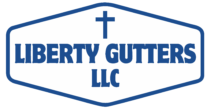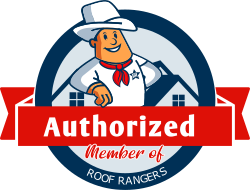The Hidden Dangers of Clogged Gutters in Dallas During Spring Storms.
Spring storms in Dallas dump heavy rain, high winds and unpredictable weather that can wreck your home. Gutters that are clogged do not direct water away properly, causing serious structural and aesthetic problems.
When gutters get clogged with leaves, dirt, and debris, they overflow and collect water around your home’s foundation. Over time, this can cause basement flooding, foundation cracks, and more expensive repairs. Water flowing over clogged gutters can also damage your landscaping, erode soil, and leave ugly stains on siding and walkways. These issues can lower your home’s curb appeal and can also lower its value.
And during spring storms in Dallas, high winds can blow poorly maintained gutters off the roof, causing more costly damage. Loose or broken gutters open up points for water, pests, and mold that can damage your home. Regular gutter cleaning and inspections – before and after storm season – are key to protecting your property and keeping it safe from the Texas elements.
8 Ways Clogged Gutters Damage Dallas Homes
1. Weakened foundation
When gutters overflow, excess water collects around the Foundation and soil erosion weakens the base of your home. Over time, this can lead to cracks, shifting, and even costly foundation repairs.
Excess moisture around the foundation also encourages mold and mildew to spread into your basement or crawl space. This creates health hazards for your family as well as a damp, musty odor and possible structural decay. A simple yet effective way to keep a dry, healthy and stable home is to prevent gutter overflow.
2. Rotting wooden Structures
Clogged gutters cause water to spill onto Wooden fascia boards, eaves, and siding. The wood rots, making your home more susceptible to pests, mold, and structural instability.
As the wood rots, termites, carpenter ants and other pests enter and destroy more wood. Moist, decaying wood attracts infestations that can spread quickly and compromise your home’s frame. Mold and mildew also thrive in moist conditions and ruin surfaces and pose health risks to you and your family. Keep your gutters clean and direct water away from any wooden parts of your home.
3. Damage to landscaping and Roof Ceilings
Overflowing water can slough off mulch, flowers, and soil, and ruin your landscape. Water may also seep into the roof and ceiling, staining, mildew growth, and costly repairs.
Excess moisture from overflowing gutters can also seep into window frames, doorways and exterior walls, damaging your landscaping and roof. This constant contact with water weakens structural components, such as wood rot, peeling paint, and warped siding. Unchecked, these issues may compromise the structural integrity of your house and cause expensive, long term damage that could have been avoided with regular gutter maintenance.
4. Formation of ice dams in colder weather, trapped water
In clogged gutters can freeze and create Ice Dams that prevent drainage. Ice dams make the gutters heavier and more likely to sag, break, and break.
In addition to obstructing drainage, clogged gutters that freeze in cold weather can create ice dams when melting snow freezes at the edge of the roof. These ice dams hold water behind them, and it does not drain through the gutters and off the roof. The trapped water may back up under the shingles, causing leaks in the roof and possibly major water damage to your interior home. The added weight of the ice can also cause gutters to sag or pull away from the house, reducing their effectiveness and requiring costly repairs. This requires regular cleaning and maintenance, especially in areas of freezing temperatures.
5. More Pest Infestations Stagnant
Water in clogged gutters invite mosquitoes, rodents and insects to breed. Eventually, pests enter your home and cause more damage and health hazards.
They are also harmful pests that carry bacteria and diseases that can sicken your family. Mosquitoes spread viruses such as West Nile and Zika and rodents chew through wiring or insulation, potentially causing fire hazards or structural problems. Attracted to moisture, insects such as termites and carpenter ants can destroy wood in your home quietly. Keeping gutters clear protects your home from water damage as well as from infestations and health hazards.
6. Wall and Interior Ceiling Damage
Water from clogged gutters can seep into walls, causing peeling paint, mold growth, and drywall degradation. This hidden moisture weakens the interior structure and causes costly repairs and renovations.
Inside damage and trapped moisture from clogged gutters can also damage your attic and roof. When water backs up, it can get under shingles and into the roof decking, causing rot, mildew and eventually roof failure. This reduces the lifespan of your roof and can also leave insulation saturated and ineffective, decreasing the energy efficiency of your home. Taking care of gutter problems early can help prevent major damage and keep your home healthy.
7. Basement flooding
If water isn’t diverted away from your home, it may flood your basement and cause mold problems. Standing water in basements can destroy personal belongings and create unhealthy living conditions.
Mold and mildew from basement flooding may also pollute indoor air and present serious health risks – specifically for individuals with allergies, asthma, or compromised immune systems. Mold can quickly spread through walls, floors, and HVAC systems and require costly remediation. Preventing water intrusion through proper gutter function is an important aspect of a safe, dry, and healthy home environment.
8. Cracked or Damaged driveways
Excessive water runoff from clogged gutters can erode the soil beneath Driveways and walkways, creating cracks and instability. Eventually, this makes the surfaces uneven and dangerous to walk or drive on.
Damage to driveways and walkways from water erosion can also require expensive repairs or replacement. Water that enters small cracks and freezes at colder temperatures may expand and widen those cracks, speeding up the degradation process. Untreated, what may be minor erosion can become major structural problems that affect not only the functionality of these surfaces but also the value and aesthetic appeal of your property.
4 Warning Signs Your Gutters Are Clogged
1. Water Overflow and Pooling
If water pours over the sides of your gutters when it rains, it may indicate a blockage preventing drainage. Pooling water near the foundation is another red flag that needs to be cleaned up immediately.
Overflowing gutters can also cause serious damage over time. If water isn’t directed away from your home, it may erode the soil around the foundation causing structural problems. This excess moisture may also seep into the walls, in which mold may grow and wood rot may occur. Gutter cleaning and maintenance are essential to avoid these costly problems and to maintain proper water flow during rainstorms.
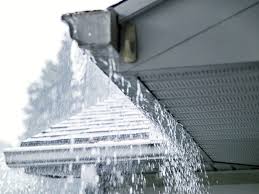
2. Rust, peeling paint, and Mold Growth
Discoloration, rust spots, or Peeling Paint around your gutters indicate years of trapped moisture. Mold and mildew buildup near gutters also indicate that water isn’t flowing away as it should.
Sagging gutters may also be a sign of trapped moisture, such as discoloration and rust spots. When gutters are clogged or improperly pitched, water pressures the system, causing it to sag or even pull away from the roof. This constant moisture exposure can cause more serious problems such as rotting wood, erosion around the foundation, or even structural problems in the long run. Gutters need to be regularly maintained and cleaned to avoid these problems and keep water flowing away from your home away from the exterior and interior of your home.
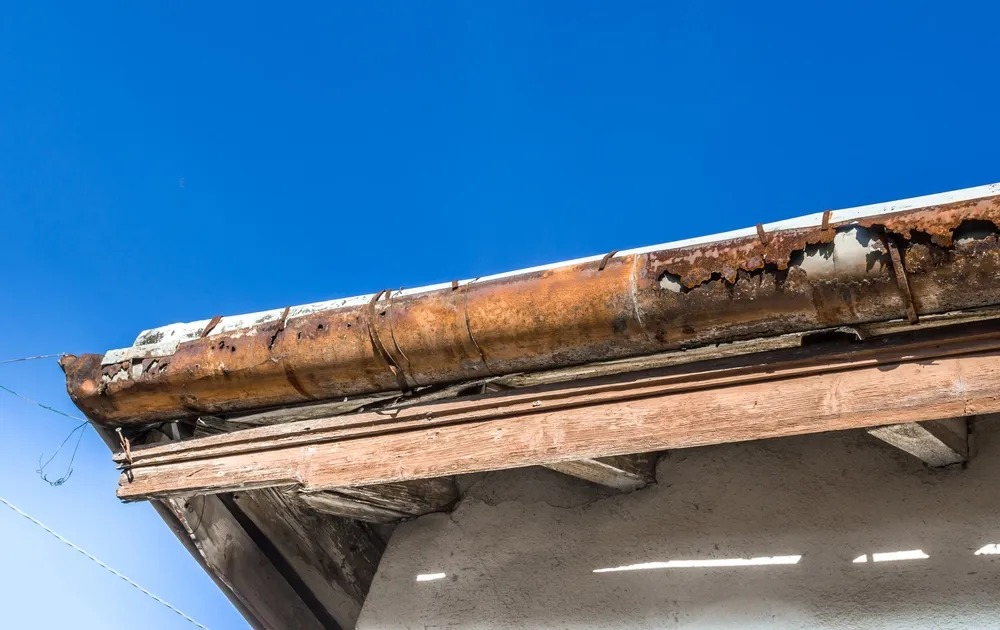
3. Sagging or cracked Gutters
Gutters that look loose, bent or cracked are probably clogged and full of water. If unaddressed, they can pull away from the home, causing structural damage and costly replacements.
If gutters look loose, bent or cracked, and not checked, they can add weight and stress to the system. Ultimately, this will pull the gutters from the roofline and produce leakages in the roof or siding. Water that overflows from clogged gutters may also enter the foundation and cause erosion, mold growth and major damage to the landscape and home structure. Constant maintenance and timely repairs will help prevent these costly issues and keep your home looking its best.
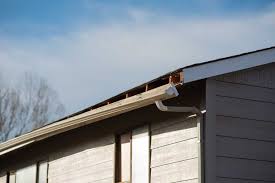
4. Interior Leaks and Water Damage
Unexplained Water stains on ceilings or walls may be caused by clogged gutters that allow moisture to enter your home. If you see damp areas, check your gutters before the problem gets worse.
Clogged gutters can also cause more serious structural problems if left untreated, such as water stains. When gutters are blocked, water may overflow and enter the roof or walls, causing mold growth, wood rot, or foundation damage over time. Regular maintenance like cleaning gutters and clearing downspouts will help avoid these costly problems. To take action early will save you cash on repairs and keep your house intact.
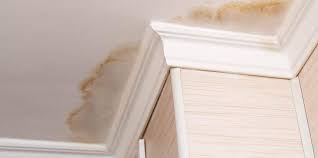
How to Avoid Clogged Gutters: Best Practices.
Clean your gutters at least twice a year, before and after storm seasons, to avoid clogging. Installing gutter guards can reduce debris buildup and the frequency of cleaning.
Check your gutters for leaks, sagging and debris accumulation to fix small problems before they become major problems. Overhanging branches may also be trimmed to stop excess leaves and twigs from blocking the system.
Also make sure downspouts are clear and directed away from the foundation of your home. Clogged or improperly placed downspouts can overflow and cause water damage around your foundation or basement. Check and clean the downspouts regularly, especially after heavy rain. A well maintained, working gutter system stops damage to your house and also prolongs the lifetime of your siding and roof.
Why You Need to Get Your Gutter Cleaning Done Regularly.
Regular gutter maintenance extends the life of your home’s exterior by preventing structural damage and leaks. The cost of ignoring clogged gutters can ruin your property.
Keeping your gutters clean protects the foundation of your home, prevents pests, and improves water drainage efficiency. It is a simple task but could save hundreds of dollars on later repairs.
Regular gutter cleaning also prevents water damage to your roof and siding because rainwater flows through the system freely. Water can overflow from clogged gutters into the wall or attic, causing mold growth, rotting wood and expensive repairs. Good gutter maintenance prevents these costly repairs and keeps your home looking new for years to come.
How to Clean Your Gutters
- Ladder Safety – Counts use a sturdy, balanced ladder to clean your gutters and avoid bending too far to the side. Have someone nearby to provide stability and help in case of an emergency.
- Use the Right Tools for the Job – Be prepared with gloves, a gutter scoop, and a hose for cleaning. A high-powered leaf blower or wet-dry vacuum attachment can also speed up the process.
- Recognize When to Call a professional – If your gutters are clogged, damaged, or hard to reach, you may want to Call a professional to save time and reduce risk. Experts have the tools and experience to do a safe cleaning.
Gutter Cleaning Cost - How Much Does It Cost?
The cost of gutter cleaning depends on your home size, the severity of the clog and local professional rates. Professional cleaning costs on average $100 to $300, but can cost more if extensive repairs are needed.
Regular cleaning saves money and is a worthwhile expense for homeowners. DIY cleaning saves money, but it takes time, effort and safety precautions.
Additionally, the frequency of gutter cleaning contributes to maintenance costs. Gutter cleaning regularly can prevent more serious problems such as water damage, mold growth, and roof deterioration, saving homeowners money on repairs down the road. Gutter maintenance is a costly mistake that can result in clogged downspouts, overflow, and structural damage. Whether you hire a professional service or clean them yourself, keeping gutters clean contributes to the value and structural integrity of a home.
Conclusion: Keep Your Home Safe by Keeping Your Gutter Maintenance Routine.
Gutter maintenance can cause serious and expensive damage, especially during Dallas’s wild spring storms. By being proactive with cleaning and inspections, homeowners can stop issues before they escalate.
Whether you do DIY maintenance or hire an expert, keeping your gutters clean will protect your home over time. A little effort today can save you big repairs and headaches later.
Regular gutter maintenance also prevents water damage to your foundation, roof, and landscaping. Water overflowing from clogged gutters can cause leaks and erosion around your home. This can weaken your foundation, mold grow and ruin your landscaping – all of which can be expensive to repair. By staying on top of gutter care, you protect your home from immediate damage and its long-term value and structural integrity.
FAQs About Clogged Gutters
How Often Should I Clean My Gutters?
The experts suggest cleaning your gutters more than twice a year, in spring and fall. But in case your home is in the middle of trees, much more frequent cleanings could be needed.
What If I Don't Clean My Gutters?
Neglected gutters can lead to foundation problems, roof leaks, and interior water damage. Over time, clogged gutters can also cause mold growth and pest problems.
Do I Need a Ladder to Clean My Gutters?
Yes, you can use gutter cleaning tools with extendable poles or a wet-dry vacuum attachment. However, a ladder is often necessary for a thorough cleaning.
Should I Replace My Gutters Instead of Cleaning Them?
If your gutters are badly damaged, cracked, or constantly leak, replacement may be the best option. A professional inspection can tell you whether repairs or a full replacement are necessary.
Are Gutter Guards a Good Investment?
Gutter guards keep debris from building up and reducing the need for frequent cleanings. They do not eliminate maintenance completely, but they do make upkeep easier.
